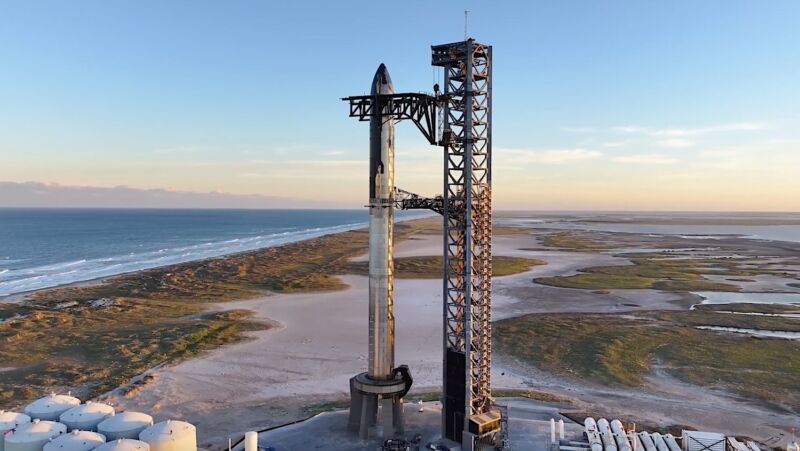If the next Starship makes it through staging, you can call that a win

Enlarge / SpaceX's second Starship rocket stands a few feet taller than the first iteration of the full-size vehicle. (credit: SpaceX)
SpaceX will have answers to some burning questions in the first three minutes of the next Starship test flight. Did the upgrades to the Starship launch pad in Texas hold up to the rocket's powerful thrust? Are the rocket's Raptor engines more reliable than they were on the first Starship test flight in April? And did the rocket's Super Heavy booster safely separate from the Starship upper stage?
The answers to these questions will show how quickly SpaceX can move forward with everything else it wants to do with Starship. These next steps include launching Starlink Internet satellites, which will expedite the network's ability to directly connect with consumer cell phones. SpaceX needs to test in-orbit refueling for Starship flights to the Moon for NASA, and engineers want to demonstrate recovering Starship's giant booster and upper stage, necessary steps to make the rocket fully reusable.
But first, the rocket needs to make it into space. That didn't happen during Starship's first full-scale test flight on April 20, but SpaceX learned a lot from that mission. Engineers learned they needed to beef up the launch mount, which took a beating from the Super Heavy booster as it generated more than 15 million pounds of thrust from its methane-fueled Raptor engines.